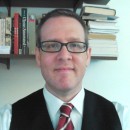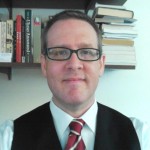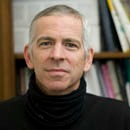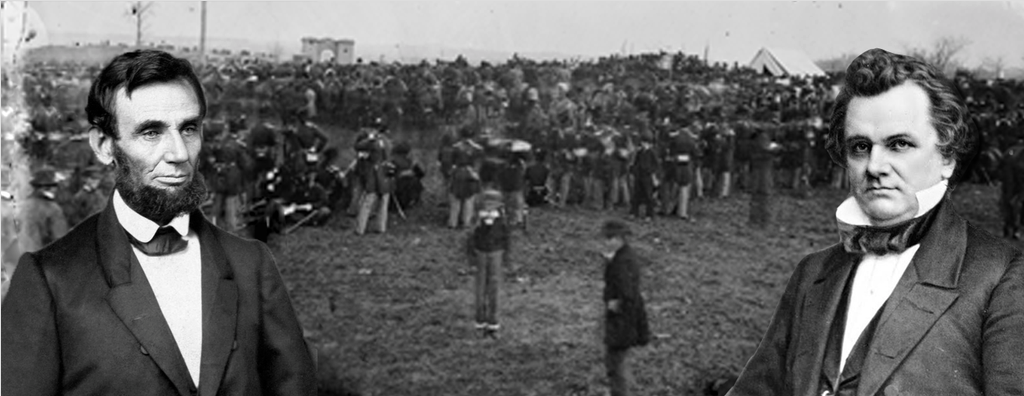Page 3 • (467 results in 0.023 seconds)
-

Dean of Assessment and Core Curriculum | First Year Experience Program | rogers@plu.edu | 253-535-7985 | Scott Rogers was born in the desert and grew up on a farm but will always call the city home.
spent so much time in New Orleans, he now considers “The Big Easy” like a second home. Scott arrives at PLU from Ohio Northern University, a small liberal arts school in northwest Ohio, where he served as Director of University Writing. His teaching interests include: first-year writing, community and public literacy, professional writing with an emphasis on new media, and the application of rhetorical theory to visual and spatial artifacts. His research interests are focused on many of these same
-

Associate Professor of English | Innovation Studies | rogers@plu.edu | 253-535-7985 | Scott Rogers was born in the desert and grew up on a farm but will always call the city home.
time in New Orleans, he now considers “The Big Easy” like a second home. Scott arrives at PLU from Ohio Northern University, a small liberal arts school in northwest Ohio, where he served as Director of University Writing. His teaching interests include: first-year writing, community and public literacy, professional writing with an emphasis on new media, and the application of rhetorical theory to visual and spatial artifacts. His research interests are focused on many of these same topics, as
-

Associate Professor of English | Native American and Indigenous Studies | rogers@plu.edu | 253-535-7985 | Scott Rogers was born in the desert and grew up on a farm but will always call the city home.
time in New Orleans, he now considers “The Big Easy” like a second home. Scott arrives at PLU from Ohio Northern University, a small liberal arts school in northwest Ohio, where he served as Director of University Writing. His teaching interests include: first-year writing, community and public literacy, professional writing with an emphasis on new media, and the application of rhetorical theory to visual and spatial artifacts. His research interests are focused on many of these same topics, as
-

Dean of Assessment and Core Curriculum | Office of the Provost | rogers@plu.edu | 253-535-7985 | Scott Rogers was born in the desert and grew up on a farm but will always call the city home.
time in New Orleans, he now considers “The Big Easy” like a second home. Scott arrives at PLU from Ohio Northern University, a small liberal arts school in northwest Ohio, where he served as Director of University Writing. His teaching interests include: first-year writing, community and public literacy, professional writing with an emphasis on new media, and the application of rhetorical theory to visual and spatial artifacts. His research interests are focused on many of these same topics, as
-
The word anthropology comes from the Greek words anthropos, meaning human, and logos, which refers to doctrine, theory or science.
Anthropology OverviewThe word anthropology comes from the Greek words anthropos, meaning “human”, and logos, which refers to doctrine, theory or science. Loosely defined, anthropology is the comprehensive study of humankind with an emphasis on culture. It is a holistic field which can touch on multiple specific disciplines, including humanistic approaches from history to literature the empirical or “natural” sciences from geology to physics, as well as behavioral studies such as sociology to
-

Interim Director, IHON | International Honors | strumac@plu.edu | 253-535-8774 | Arthur Strum teaches interdisciplinary courses drawing particularly upon philosophy, literature, and political theory.
Immanuel Kant History and Meaning of Jazz Aesthetics American and African-American Culture and Literature German philosophy Critical Theory Theory/History of Public Sphere Alexander Kluge Biography Arthur Strum teaches interdisciplinary courses drawing particularly upon philosophy, literature, and political theory. He began his career in the field of German Studies, teaching and writing for more than a decade on 18th and 19th century German philosophy, the Bildungsroman, The Frankfurt School, Kant
Area of Emphasis/Expertise -
The graduate programs at Pacific Lutheran University are designed to combine practice and theory to prepare students to take the next step in their careers.
University are designed to combine practice and theory to prepare students to take the next step in their careers. Vision: PLU graduate students will be highly skilled, knowledgeable, ethical professionals and leaders for their businesses, organizations, and communities. Mission: PLU graduate programs strive to deliver intellectually challenging, collaborative learning experiences in specialized fields that assist students to reach their personal and professional goals.Contact Us Email: gradadmission
Graduate AdmissionGraduate Admission Pacific Lutheran University 12180 Park Avenue South Tacoma, WA 98447-0003 -
The graduate programs at Pacific Lutheran University are designed to combine practice and theory to prepare graduates to take the next step in their careers.
Graduate ProgramsThe graduate programs at Pacific Lutheran University are designed to combine practice and theory to prepare graduates to take the next step in their careers. ProgramDivision Master of Business AdministrationSchool of Business – Pathway ProgramsSchool of Business – Professional Business CertificatesSchool of Business Master of Arts in EducationSchool of Education – 1-Year Teaching CertificationSchool of Education – Alternative Routes to Certification School of Education – Non
-

Dr. David Zarefsky to speak on the 1858 public debates Renowned argumentation scholar David Zarefsky will bring his expertise to Pacific Lutheran University (PLU) to speak on “Lincoln, Douglas, and Slavery: In the Crucible of Public Debate” on Thursday, May 14 at 6 p.m. in…
examines the dynamics of the seven 1858 Lincoln-Douglas debates, placing them in historical context and explaining the complicated issue of slavery in the territories. He explains the candidates’ arguments, analyzes their rhetorical strategies and shows how public sentiment is transformed. “Dr. Zarefksy’s fascinating account of the Abraham Lincoln and Stephen Douglas debates around slavery draws into relief how even the most obvious moral solutions were at one time controversial,” Justin Eckstein
-
Dr. Vandana Shiva trained as a Physicist at the University of Punjab, and completed her Ph.D. on the ‘Hidden Variables and Non-locality in Quantum Theory’ from the University of Western Ontario,
Dr. Vandana ShivaDr. Vandana Shiva trained as a Physicist at the University of Punjab, and completed her Ph.D. on the ‘Hidden Variables and Non-locality in Quantum Theory’ from the University of Western Ontario, Canada. She later shifted to inter-disciplinary research in science, technology and environmental policy, which she carried out at the Indian Institute of Science and the Indian Institute of Management in Bangalore, India. In 1982, she founded an independent institute – the Research
Do you have any feedback for us? If so, feel free to use our Feedback Form.


